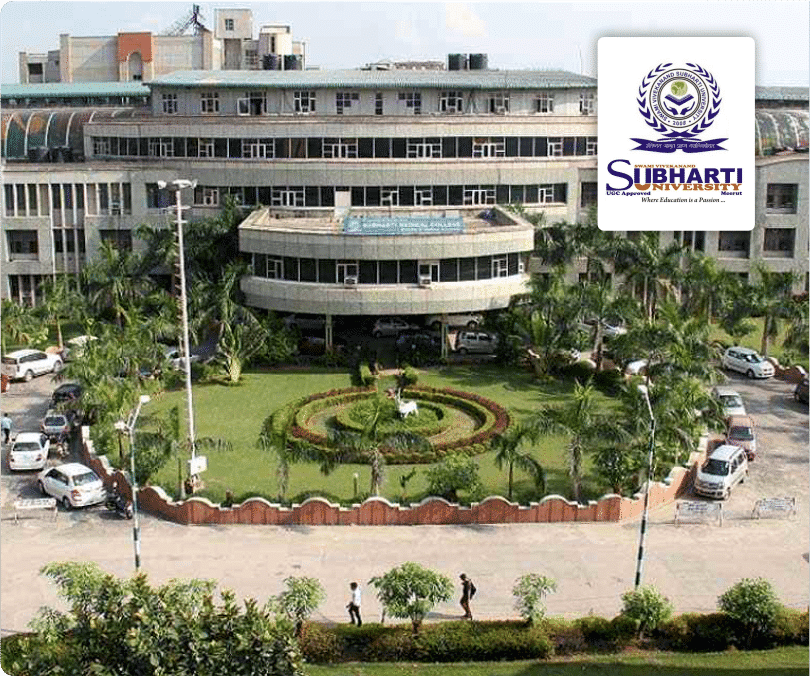
MBA Business Analytics Syllabus Explained – Your Guide to Success in 2026!
An MBA in business analysis is one of the most sought-after programs today. Businesses are using data to make better decisions, and they need skilled professionals to help them understand and analyse data. If you are planning to pursue this course, understanding the MBA business analytics syllabus is important. It gives you a clear idea of what you will learn and how it will help you in your career.
The business analytics course is designed to equip students with the knowledge and skills needed to analyse business data effectively. It combines business studies with technical knowledge to help students make data-driven decisions.
The data analytics course syllabus covers various subjects. Some of them are statistics and data visualisation, which play an important role in learning the subject. This different mix of topics helps students become experts in handling data for their overall business growth.
Pursuing an MBA in business analysis can open doors to many career opportunities. Companies across industries need professionals who can analyse data and offer insights. This course prepares you to take up roles such as data analyst, business intelligence manager, and more. Understanding the syllabus will help you plan your studies and career better.
Core Components of the MBA Business Analytics Syllabus
The MBA business analytics syllabus includes subjects that help students understand both business and data. It focuses on building a strong foundation in business management while teaching technical skills required for data analysis. This balance allows students to make better business decisions using data insights.
The business analytics course includes subjects like statistics, programming, and machine learning. It also covers business-related topics such as marketing, finance, and operations. The data analytics course syllabus ensures that students get a deep understanding of how to use data in different business areas.
Some of the main subjects included in the MBA in business analysis program are data mining, business intelligence, predictive analytics, and data visualization. These are the subjects which help students to achieve the following tasks:
- How to collect?
- How to analyze?
- How to present data?
Apart from classroom learning, students also work on real-world projects. This helps them apply what they learn in real business situations. The syllabus is designed to help students gain both theoretical knowledge and practical experience.
Detailed Breakdown of MBA Business Analytics Subjects
| Semester | Subjects |
|---|---|
| Semester 1 |
|
| Semester 2 |
|
| Semester 3 |
|
| Semester 4 |
|
What are some of the most well-known Specializations in Business Analytics?
The MBA business analytics syllabus offers different specialisations to help students focus on specific areas of interest. These are the specializations that allow students to create their own expertise in these areas. Some of the popular specialisations in the MBA in business analysis program include marketing analytics, financial analytics, and supply chain analytics
In marketing analytics, students learn how to analyse customer data and market trends to help businesses improve their marketing strategies.
Financial analytics focuses on analysing financial data to help businesses make better financial decisions. The business analytics course also offers specializations in human resource analytics and healthcare analytics.
Each specialisation in the data analytics course syllabus is designed to provide in-depth knowledge of the chosen field. This will help students to become experts and also become exceptional.
Skills Developed Through the MBA Business Analytics Syllabus
The MBA business analytics syllabus helps students develop a wide range of skills. These skills are essential for analysing business data and making informed decisions. The business analytics course focuses on both technical and soft skills that are important in the field.
Students develop technical skills such as data analysis, programming, and machine learning. They learn how to use tools like Python, R, SQL, and Tableau to analyse and visualise data.
The data analytics course syllabus also helps students create better quality of problem-solving skills by working on real-life projects. Apart from technical skills, students also develop communication and leadership skills. The MBA in business analysis program teaches students how to present data insights to business leaders and work in teams effectively.
Top Institutes Offering MBA in Business Analytics in 2026
You need to know about the best institutes that offer the MBA in business analysis program. These institutes provide comprehensive training and exposure to real-world business problems.
In addition to Indian institutes, global universities such as Harvard, Stanford, and MIT offer excellent programs. These are the universities that do provide a wide range of subjects which are covered within the data analytics course syllabus. Students will have the opportunity to choose from full-time, part-time, or online programs based on their preferences.
Choosing the right institute is important for a successful career. The MBA business analytics syllabus at these institutes covers all of the latest trends that are present within this field.
If you are studying at a reputed institute than it will surely provide better job opportunities and industry exposure.
1. DY Patil University
The MBA for Business Analytics program at UGC approved DY Patil University teaches students how to use data to make informed business decisions. Important subjects including data management, modelling predictions, and business intelligence are included in the MBA business intelligence curriculum. The goal of this business analytic course is to provide students with the knowledge and abilities necessary to comprehend and evaluate complicated data. Through case studies and real-world projects, students get practical experience with an emphasis on learning by doing.
| Aspect | Details |
|---|---|
| Program Duration | 2 Years |
| Mode Of Study | Online |
| Eligibility Criteria | All applicants who have earned a minimum of 35% on their Bachelor of Science exam in any field from an accredited institution or a degree of comparable standing recognised by the University Grants Commission are encouraged to apply to the university. |
| Course Fees | ₹45,000/- per Semester |
| University Accreditation | UGC | NIRF 44 | NAAC A++ |
2. Jamia Hamdard University
Jamia Hamdard University provides an MBA in Business Analysis for students who want to build a strong career in data-driven decision-making. The business analytics course focuses on important areas like statistical analysis, and machine learning. The MBA Business Analytics syllabus is designed to give students a complete understanding of how to use data to solve business challenges. With expert faculty and industry exposure, students get the right mix of theory and practice.
| Aspect | Details |
|---|---|
| Program Duration | 2 Years |
| Mode Of Study | Online |
| Eligibility Criteria | Students should have a bachelor's degree from an accredited university in any field. They must own a cumulative GPA (CGPA) of 5 on a 10-point scale or at least 50% of their total grades. Applicants may potentially be in their last year of graduation. |
| Course Fees | ₹33,750/- per Semester |
| University Accreditation | UGC | NIRF 62 | NAAC A+ |
3. KL University
The MBA in Business Analysis program at KL University gives students the skills they need to evaluate and comprehend business data. Big data technology, data mining, and company projections are among the topics covered in this statistical syllabus. Students who complete this business analytics class will acquire useful abilities that they may use in a variety of sectors. By emphasising practical applications, KL University makes sure that its students are prepared for the workforce.
| Aspect | Details |
|---|---|
| Program Duration | 2 Years |
| Mode Of Study | Online |
| Eligibility Criteria | 55% in any field for a bachelor's degree using the 10+2+3 schedule. Must have achieved a ranking in the ICET, MAT, CAT, XAT, KL School of Business Aptitude Test (KLUBSAT), and Personal Interview. |
| Course Fees | ₹15,000/- per Semester |
| University Accreditation | UGC | NIRF 28th | NAAC A++ |
Conclusion
The MBA business analytics syllabus is designed to equip students with the skills they need to succeed in the data-driven business world. This will cover a mix of several business and technical subjects. In this way, preparation will be possible for students for a much wider range of career opportunities. The business analytics course helps students learn how to analyze data and make informed business decisions.
The data analytics course syllabus does ensure that students develop practical skills through real-world projects. Pursuing an MBA in business analysis can be your key to success in the fast-growing field of business analytics.
Most Popular Blogs

Distance MCA vs Online MCA vs Regular MCA: Which Study Mode is Best?

Is Online MCA in Data Science Worth It in 2026? Career Scope & Benefits

Online MCA in Data Science: Course Details, Fees, Eligibility & Career Scope

Distance MCA at Jain University: Fees, Syllabus, Eligibility & Career Scope

Why Pursue an Online MBA in Logistics and Supply Chain Management in 2026?



















